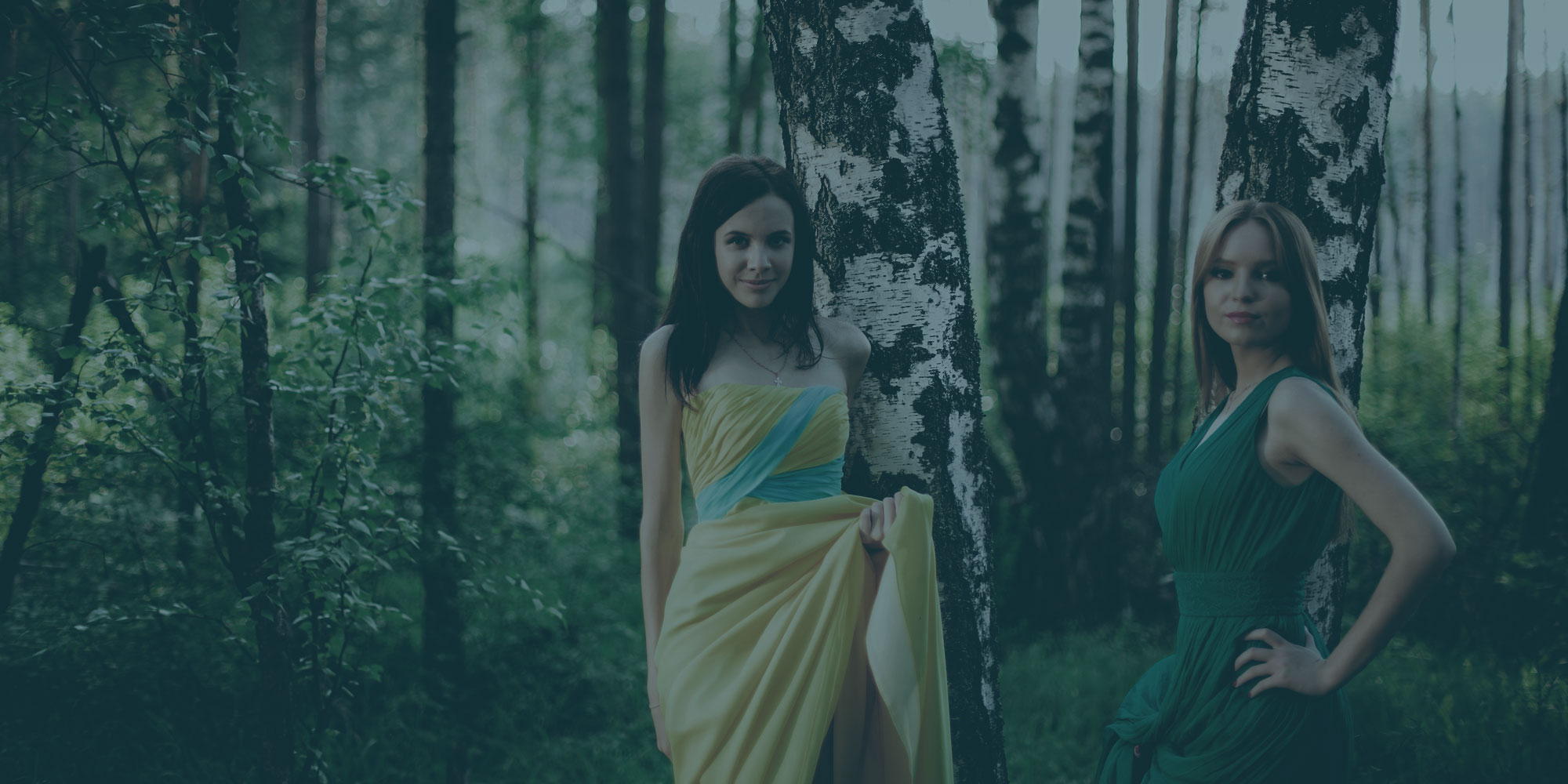During the year 2022, RESANAS developed a universal sanitisation process called “AKILLE”. By means of a mixture of gases under controlled conditions within an airtight reaction chamber, the process enables microbiological sanitisation from pathogens and SARS-CoVid 19 on a diverse range of materials used today in the production and marketing of a wide variety of consumer products (excluding foodstuffs for the time being).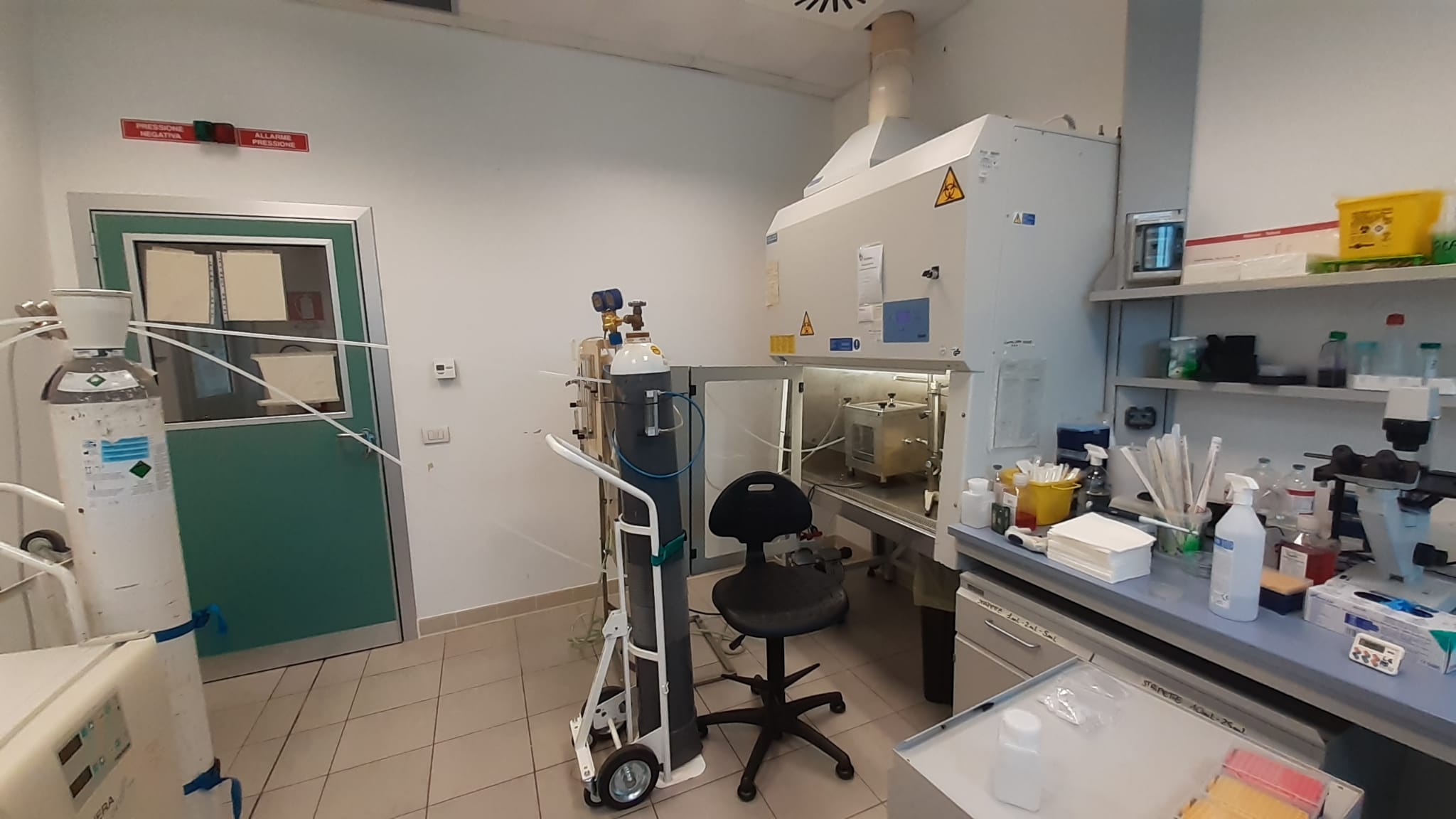
It is certified that the spread of many viruses such as SARS-CoV2 occurs by air and/or by contact with the respiratory tract. According to recent studies, viruses are capable of remaining suspended in the air for prolonged periods and, once deposited, depending on the material, of surviving on surfaces for long periods of up to several months.
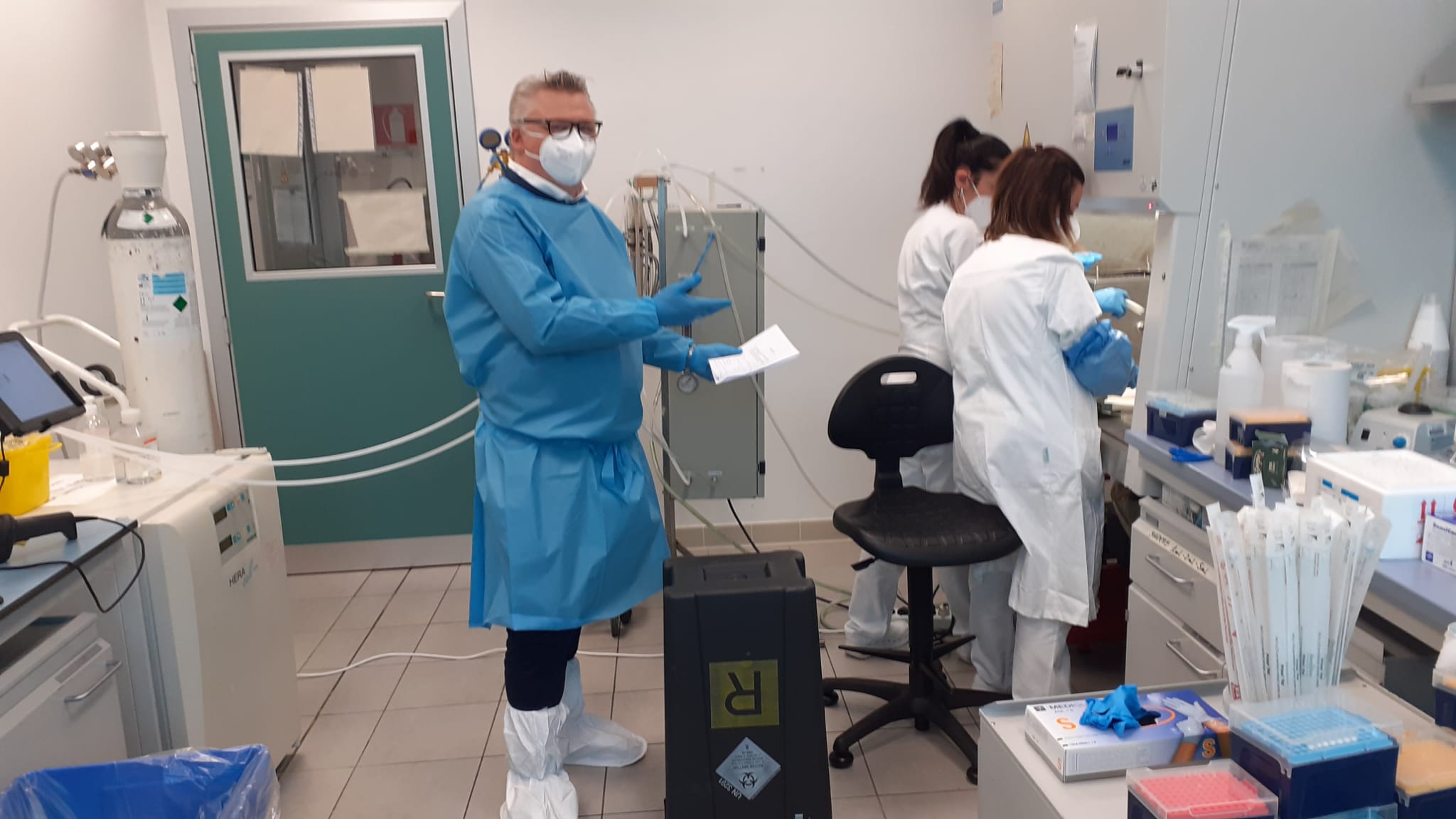
Environmental contamination can also promote contact infections by self-inoculation through hands in contact with the mucous membranes of the nose, eyes and mouth.
Fathizadeh et al.(2020) showed that depending on surfaces and materials, SARS-CoV-2 can persist from several hours to several days, allowing indirect transmission by contact with the contaminated environment. Specifically, SARS-CoV-2 would resist up to 4 hours on copper surfaces, up to 8 hours on latex gloves, 2 days on surgical gowns, 2-3 days on steel, 4 days on glass, 4-5 days on wood, 5 days on metal, 4 days to 9 days on plastic and 1 day to 5 days on paper.
Riddel et al. (2020) showed infectious SARS-CoV-2 recovered from different types of contaminated (non-porous) surfaces such as banknotes, stainless steel, glass, villic resins for at least 28 days (at room temperature and 50% relative humidity).
Recently, viable SARS-CoV-2 was also isolated from surgical masks 7 days after use in a contaminated environment (Chin et al. 2020). Increasing the temperature drastically reduces virus survival to 24 hours at 40 °C.
Most of the published work on disinfection of PPE and similar materials has used liquid chemicals, heat or ultraviolet light (Ludwig-Begall et al. 2020), but all these methods have several disadvantages. For example:
- Liquid treatments require time and energy-consuming drying devices, residual products can produce skin irritation, some PPE is sensitive to heat or liquids.
- Ultraviolet light is inefficient for complex shaped goods with shaded areas in relation to radiation.
- Aqueous Vapour is not suitable for sanitising surfaces composed of man-made fibres or chemicals, which due to the high temperatures would preclude their structural and therefore qualitative characteristics.
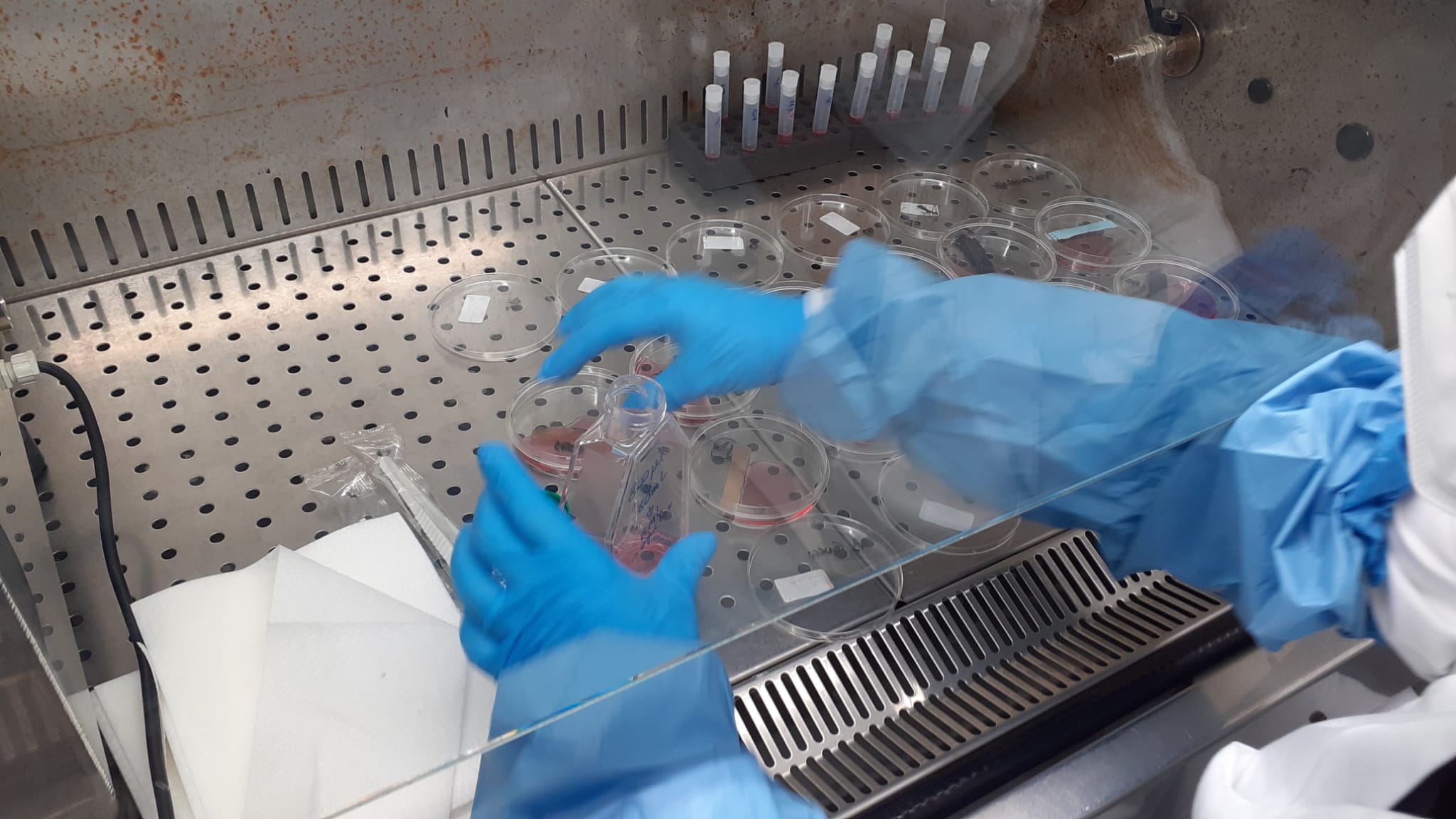
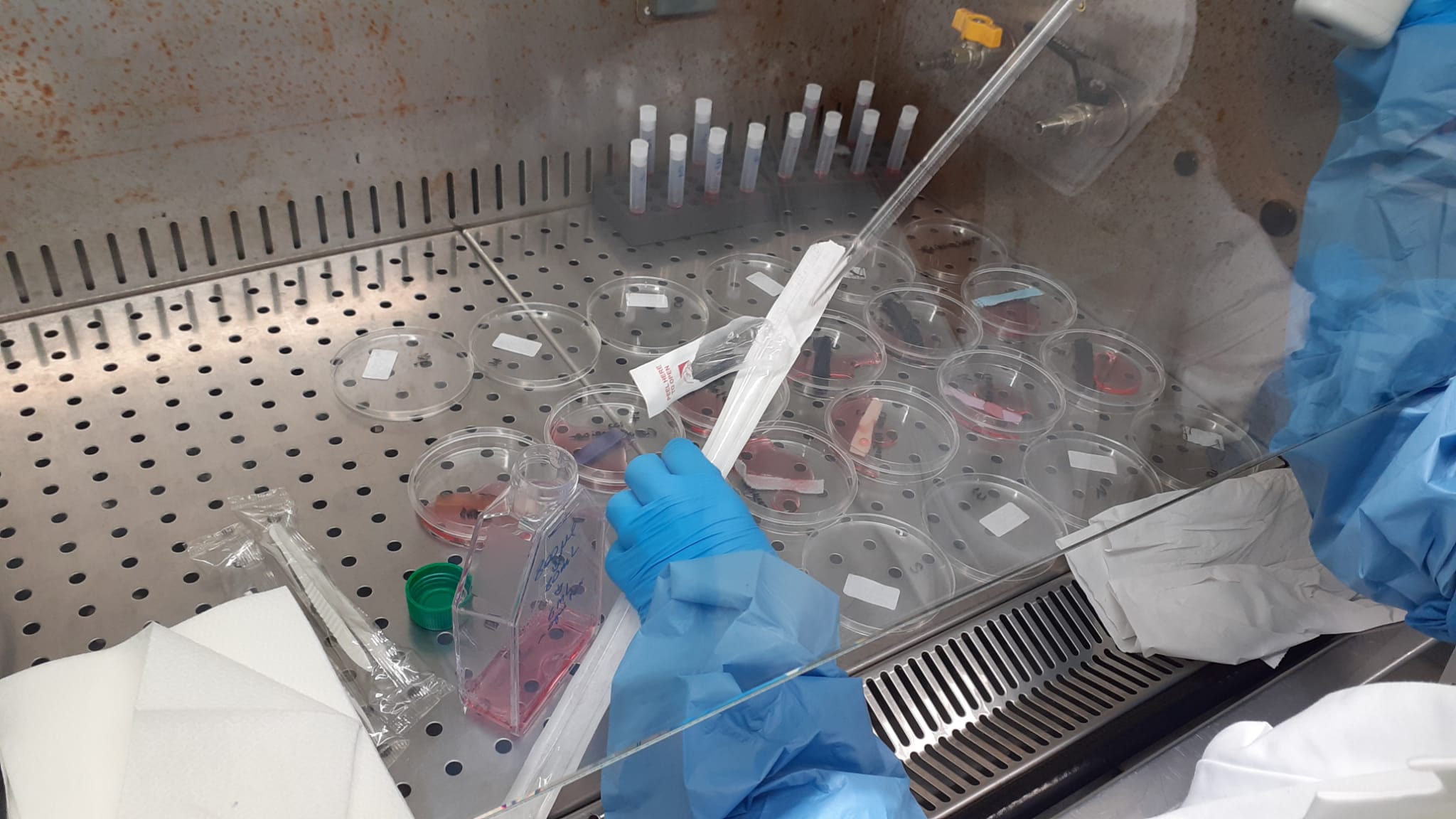
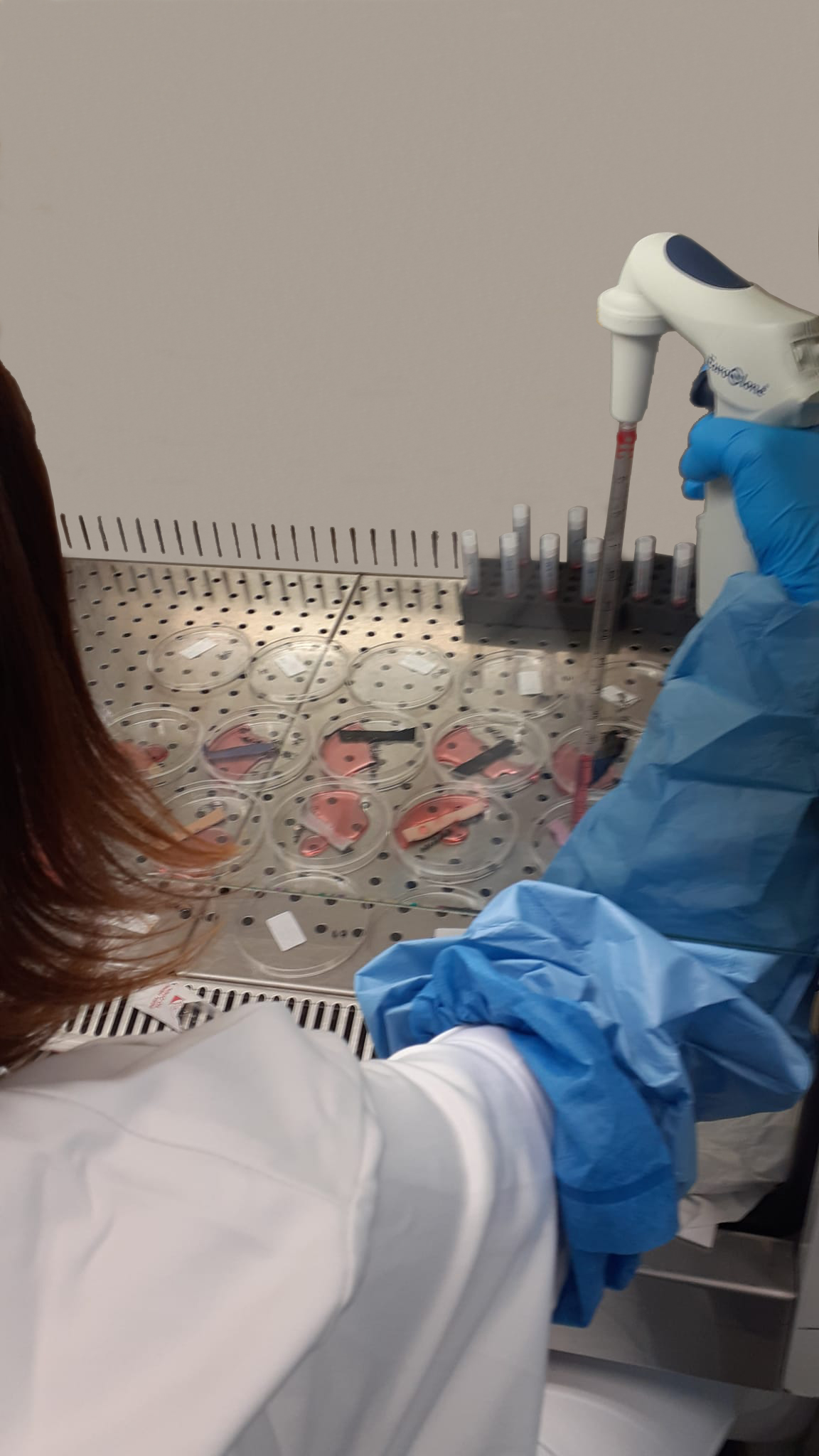
“AKILLE”, in its final patenting stage, has obtained 3 types of CERTIFICATION from as many EU analysis laboratories, including:
- MICROBIOLOGICAL, through one of the most important Level 3 Analysis Laboratories present at European level, which certified the total sanitisation on all 16 infected materials, subsequent sanitisation and, after 48 h of incubation, final microbiological analysis.
Subsequent to MICROBIOLOGICAL CERTIFICATION, at a Materials Analysis Laboratory in the province of Biella (Italy), identical samples of material were subjected to REPEATED AKILLE CYCLES to verify the integrity of the QUALITY characteristics, obtaining the following certifications:
- QUALITATIVE CERTIFICATION ON THE STRUCTURE OF THE MATERIALS: through the analysis of the variation of the structures of the individual “Processed” samples with respect to the “Original” ones thanks to the use of a Gester GT-C01-1C double-column dynamometer, operating according to ISO standards relating to fabrics [12] and yarns [13], whereby according to ISO 13934-1:2013 and ISO 2062:2009, no noteworthy variations in the internal structure are recorded
- COLORIMETRIC CERTIFICATION: through the analysis of the “colorimetric” variation of the “Processed” samples with respect to the “Original” ones, thanks to the use of a Datacolor 550 Reflection Spectrophotometer, operating according to ISO standards [7, 8], for which according to ISO 105-J01:1997 and ISO 105-J03:2009, no noteworthy colorimetric variations were recorded.
